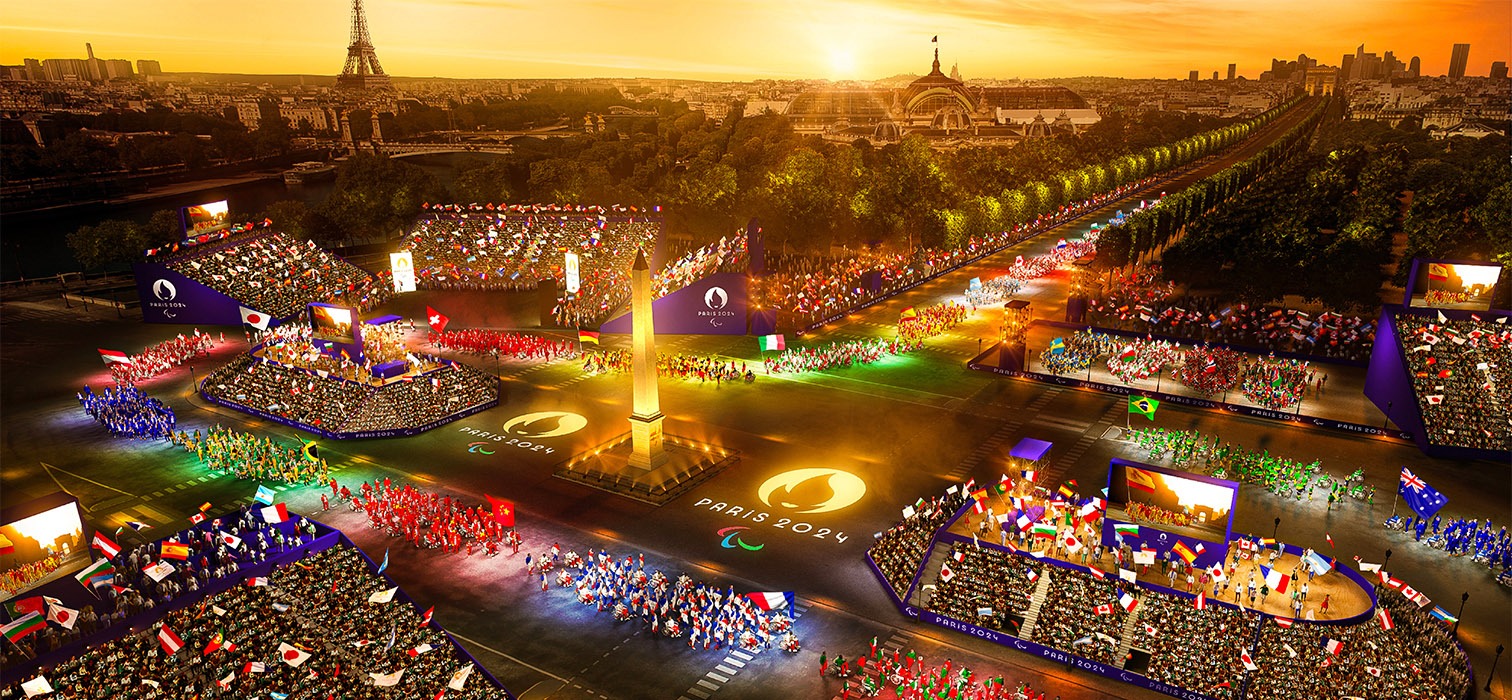Is the Paris 2024 Olympics Truly as Sustainable as Promised?

As the Paris 2024 Olympics draw global attention, the Games have been lauded for their ambitious environmental goals during their preparation phase. However, the question remains: Is the event genuinely sustainable, or are these claims merely a façade of greenwashing?
The Paris 2024 Olympics, which has captivated us with exhilarating moments like American gymnast Simone Biles’ continued dominance after a decade, French swimmer Léon Marchand’s multiple gold medals and record-breaking performance in the 400 meters, and Yusuf Dikeç’s impressive silver medal win without specialized equipment, is also making headlines for reasons beyond athletic achievement. Unlike previous Games, the Paris 2024 Summer Olympics has placed sustainability at the forefront of its agenda. From the very beginning, efforts to ensure the environmental responsibility of the event have been prominently showcased to the public. But amidst the excitement and fanfare, a crucial question lingers: Is the Paris 2024 Summer Olympics truly as sustainable as it claims to be?

The year 2024 has starkly highlighted the escalating climate crisis, with soaring temperatures and increasingly severe weather events occurring across the globe. In response to the growing criticism of mega-events perceived as exacerbating the climate emergency, the Paris 2024 Summer Olympics embarked on a mission to redefine the Olympic and Paralympic Games. This initiative, known as “Olympic Agenda 2020+5,” aims to establish a groundbreaking model for future Games, promising an event that is more responsible, sustainable, unified, and inclusive on a global scale.

Introduced in 2018, the Olympic Agenda is built upon three core pillars:
- Accelerating both environmental and social transformation
- Delivering a Games organization that serves as an inspirational and exemplary model
- Strengthening the social and environmental legacy left by the Games.
The agenda encompasses ambitious environmental objectives, including a commitment to halving greenhouse gas emissions by aligning Paris 2024 with the Paris Agreement, and achieving carbon neutrality through offsetting any remaining emissions. Additionally, the agenda outlines social goals aimed at increasing youth engagement, particularly through initiatives like Olympic and Paralympic Week.
Paris 2024 has notably distinguished itself as the first Olympics to feature an equal number of male and female athletes, and despite the controversy surrounding the opening ceremony on social media, it can be said that the Games have successfully met their social objectives under the broader theme of sustainability. However, when it comes to environmental goals, the Paris Olympics have struggled to deliver with the same level of success.

In 2021, the organizing committee set forth highly ambitious targets, such as hosting a carbon-neutral event, establishing a circular economy for the Games, and achieving zero waste. To meet these goals, they announced a series of strategic steps, including:
- Implementing a responsible purchasing strategy that considers both environmental and social impacts,
- Ensuring all event venues are accessible by public transportation,
- Utilizing 100 percent renewable energy,
- Employing natural cooling methods in the Olympic Village to avoid air conditioning,
- Serving meals that are 60 percent plant-based,
- Collaborating with stakeholders to reduce carbon emissions and neutralize post-Games emissions, aiming for zero carbon output.
Despite these ambitious goals being set during the planning phase, the commencement of the competitions saw a gradual shift away from terms like “Net Zero Olympics” or the self-proclaimed “Green Olympics.” Instead, the more generalized and ambiguous term “Sustainable Olympics” began to replace these earlier, more specific commitments. One of the most significant retreats was the abandonment of the target to cut 1.58 million tons of CO₂ emissions. Martin Muller from the Institute for Geography and Sustainability at the University of Lausanne remarked, “The quantified target, initially announced with considerable fanfare as a significant advancement over previous Games, has been discarded. Without a measurable target, there is no enforceable obligation,” highlighting the gravity of this shift.

The absence of air conditioning in the athletes’ accommodations and the reduction of meat in their meals have sparked considerable feedback from participants. However, the most pressing concern among environmental advocates is the withdrawal of the carbon reduction target and the perceived inadequacy of measures taken to lower emissions. Paris 2024, which aspires to cut its carbon footprint by 50 percent compared to London 2012 and Rio 2016, has opted to utilize 95 percent of existing structures rather than constructing new ones. While this approach significantly impacts carbon reduction, it overlooks a major environmental issue: Scope 3 carbon emissions resulting from the activities of participants.
Scope 3 emissions, which are the most challenging to quantify, contain, and neutralize, play a notably minor role in Paris 2024’s net zero strategy. When questioned about tracer emissions, the response was, “[It’s] not entirely our responsibility; we can’t control how people choose to travel or arrive,” casting doubt on the effectiveness of the carbon reduction targets. Furthermore, the low credibility of the “offsetting” mechanisms—central to Paris 2024’s approach to carbon neutrality—has sparked concerns of “greenwashing.”

The environmental issues associated with Paris 2024 extend beyond these concerns. During the Games, social activists from Extinction Rebellion staged a peaceful protest to highlight the event’s detrimental impact on Paris and the environment. A key issue prompting this protest was the failure of a $1.5 billion initiative aimed at revitalizing Paris’s aging sewage system and making the Seine swimmable in time for the 2024 Summer Olympics.
Following the announcement that the Seine River, which had been closed to swimmers since 1923 due to hazardous bacterial contamination, had been cleaned and deemed safe for swimming, protests erupted in Paris. The city’s residents took to the streets to express their concerns about the environmental impact of the Olympics after tests revealed the presence of E. Coli bacteria, which posed a potential health risk to athletes. Despite the cancellation of a preliminary triathlon swimming test due to these concerns, athletes proceeded to swim in the Seine on August 5 to complete the swimming segment of their competition.
The decision to proceed with the Seine swim was made after the Belgian Olympic Committee announced its withdrawal from the mixed relay triathlon. This decision followed an incident where one of its athletes fell ill after swimming in the river the previous week. Additionally, three of over 100 triathletes who competed in the men’s and women’s races on July 30 reported illnesses in the days that followed, though it remains uncertain if these were caused by bacterial contamination in the Seine.

While the Paris Olympics initially promised a comprehensive sustainability plan and ambitious environmental goals, it has struggled to meet these promises. The effectiveness of Paris 2024’s sustainability efforts raises concerns about the environmental impact of future Olympic Games. Despite Paris’s efforts to reduce its carbon footprint by repurposing existing infrastructure, there is no guarantee that future host cities will achieve similar outcomes. For instance, Los Angeles, the host for 2028, has been working since 2021 on revamping its subway system for the Games, while Brisbane, slated to host in 2032, has already begun construction on six Olympic villages. However, neither city has matched Paris in terms of a comprehensive sustainability strategy or ambition.
“Sustainable Olympics is an oxymoron, and the [Olympic] model is fundamentally unsustainable,” asserts Madeleine Orr, Professor of Sport Ecology at the University of Toronto.

Although the Paris 2024 Olympics have made notable strides in reducing their environmental impact compared to previous Games, we remain far from achieving the promised positive environmental outcomes. Environmental and sustainability experts suggest that the Olympics must either intensify their commitment to sustainability or consider a radical overhaul. This could involve reimagining the event in a way that supports host cities in transitioning to renewable energy, thereby securing the long-term sustainability of the Games.




